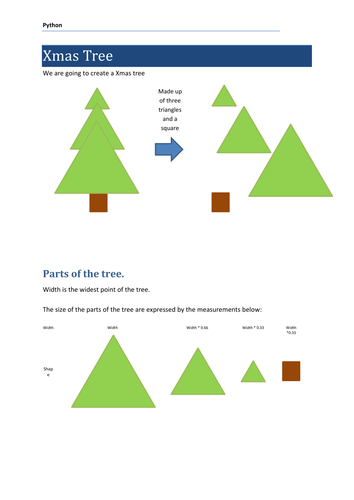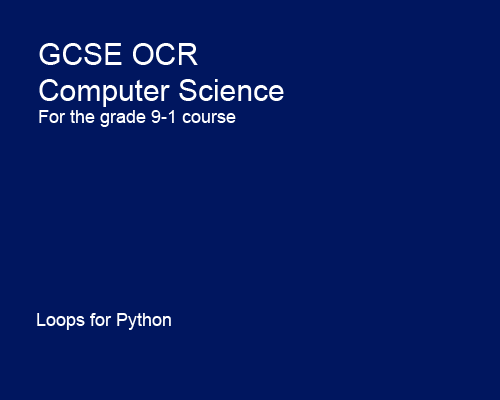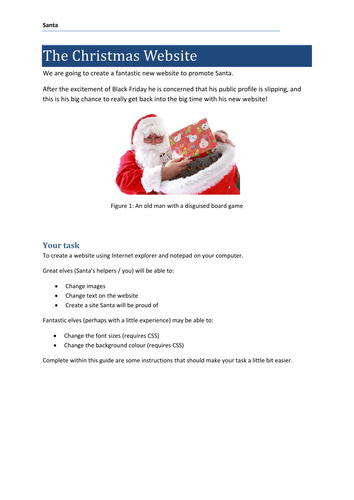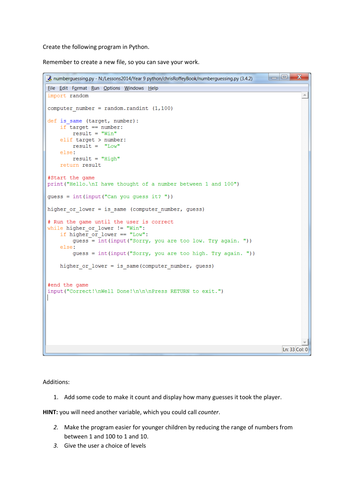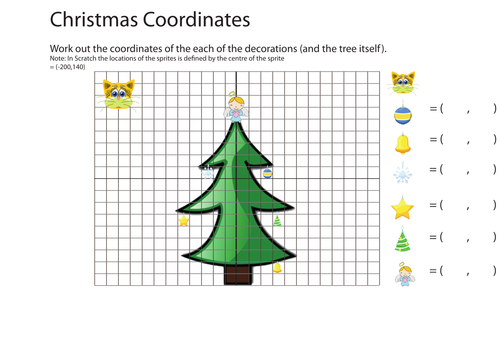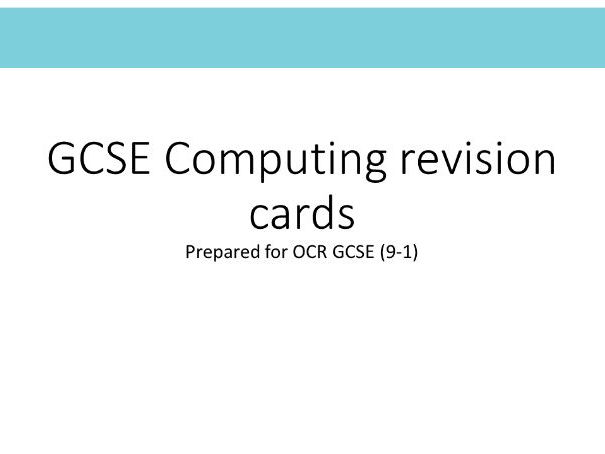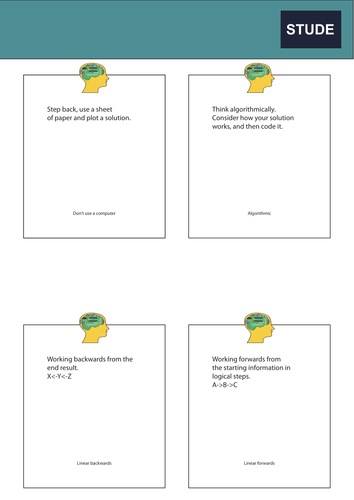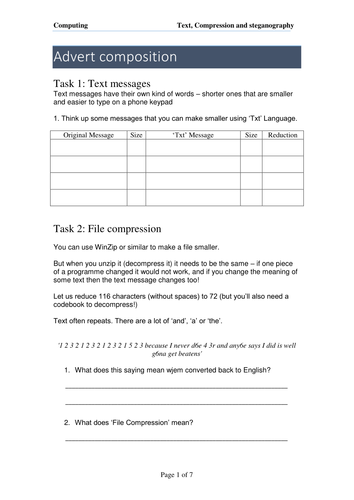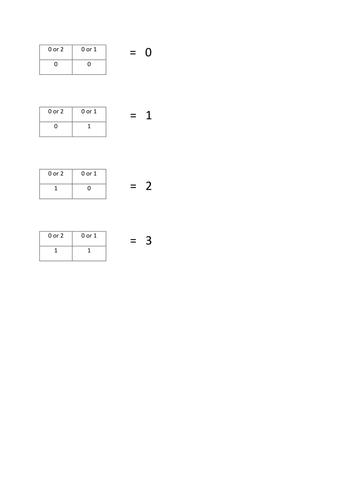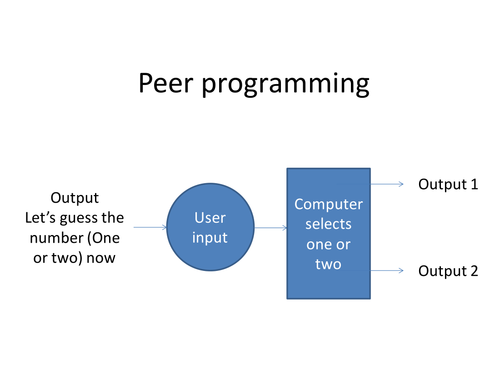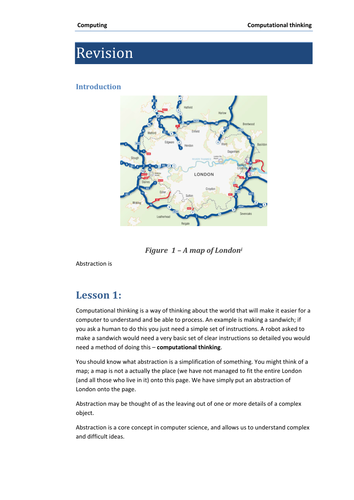
546Uploads
228k+Views
80k+Downloads
Computing

Python Christmas - Create a Xmas Tree Lesson
Create a Christmas tree using python 3.x
No presentation, give the students the worksheet and see how they can progress!
Bundle

Loops and iteration - GCSE Computer Science OCR 9-1 Programming with Python
A complete bundle for OCR 9-1, introducing Python. Has both theory and practical lessons; could be spread over two, three or four lessons as suitable for your context.

Python Christmas Xmas night
A worksheet for Python 3.x for Christmas - make a Xmas night picture.
No Presentation for this, I'd give them the files and the worksheet and let them do it!
Students will find this easier if they know something about variables, loops and preferably functions (although they can always look things up on the web to get this working)

Santas website (HTML) Computing Christmas lesson
A complete session (could be a lesson, could be longer if you wanted) to get students to create a website.
Full instructions provided - give them the files and the booklet and go. They love changing the text and images and it's all related the the computing curriculum!
No special software required, uses notepad and Internet Explorer (all Windows computers have these installed)

Number guessing game for python
Simple number guessing game for Python 3. The starter code is in the Word document, giving support to all learners.
Bundle

2.2 Programming techniques for Python - GCSE Computer Science OCR 9-1 Programming with Python
Covers 2.2 Programming techniques from the specification.
Created for use with Python version 3.x. (although could be adapted for version 2)
Full resources for the following:
**
Learners will study the following: **
• how to identify and use variables, operators, inputs, outputs and assignments
• how to understand and use the three basic programming constructs used to control the flow of a
program: Sequence; Selection; Iteration
• how to understand and use suitable loops including count and condition controlled loops
• how to use different types of data, including Boolean, string, integer and real, appropriately in
solutions to problems
• how to understand and use basic string manipulation
• how to understand and use basic file handling operations:
-open
-read
-write
-close
• how to define and use arrays (or equivalent) as appropriate when solving problems
• how to understand and use functions/sub programs to create structured code.
Bundle

File Handling - GCSE Computer Science OCR 9-1 Programming with Python
A complete bundle for OCR 9-1, File Handling in Python. Covers the basic file handing detailed in the specification ( open, read, write, close).
Has both theory and practical lessons; could be spread over two, three or more lessons as suitable for your context.

Xmas Coordinates in Scratch
1. Take the worksheet (printed) and write down the coordinates of the coordinates of the each of the decorations (and the tree itself).
2. Decorate the tree using those coordinates!
3. Decorate the tree further, noting the coordinates that you use.

GCSE Computer Science Revision and Challenge cards for OCR GCSE (9-1) J276
94 Computer science challenge cards that can be used to extend students.
Designed for GCSE Computer Science OCR (9-1) J276 and is suitable for any programming language
These cards are based on the topics that are examined in GCSE Computer science as end of class plenaries, extension tasks or flipped homework tasks. Designed for OCR GCSE (9-1) J276.
Topics covered:
1.1 Systems architecture
1.2 Memory
1.3 Storage
1.4 Wired and wireless networks
1.5 Network topologies, protocols and layers
1.6 System security
1.7 Systems software
1.8 Ethical, legal, cultural and environmental concerns
2.1 Algorithms
2.2 Programming techniques
2.3 Producing robust programs
2.4 Computational logic
2.5 Translators and facilities of languages
2.6 Data representation
This is also offered in the great value bundle KS3 Computing without the planning

The Easter Bunny website (HTML) Computer Lesson
A complete Easter session (could be a lesson, could be longer if you wanted) to get students to create a website.
Full instructions provided - give them the files and the booklet and go. They love changing the text and images and it’s all related the the computing curriculum!
Great for GCSE classes but can equally be used for KS3 as all the materials are there to be used; no teacher prep!
No special software required, uses Notepad and Internet Explorer (all Windows computers have these installed).

Thinking skills for GCSE Computing
Cards that can be cut out or used as a display for thinking skills in computing. Very important for classes!

20 GCSE computer science plenaries for OCR GCSE (9-1) J276
20 quick-fire plenaries for GCSE computing for OCR GCSE (9-1) J276.
Saves hours of work; particularly when purchased as part of the bundle GCSE computer science without the planning.
GCSE Computer Science for OCR (9-1) J276 lessons without the planning.

End of topic HTML quiz
You can use this quiz as something at the end of a topic, or as an end of year quiz

Rock paper scissors game (GCSE Computing - Pascal)
Fully resourced rock paper scissors game for Pascal.
Get students to think about, then code a rock paper scissors game in Pascal

Abstraction revision for KS3 students
Abstraction revision for KS3 students.
A great worksheet that you can go through with your students.
Bundle

Python Love (Valentines day bundle)
Three great activities for use with Python.
Based around valentines day - have fun with your class!

